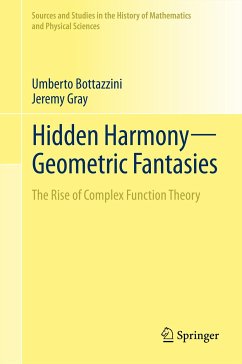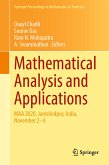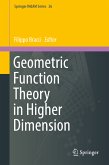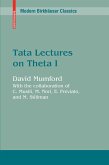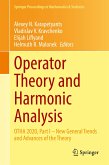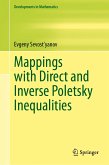This book is a history of complex function theory from its origins to 1914, when the essential features of the modern theory were in place. It is the first history of mathematics devoted to complex function theory, and it draws on a wide range of published and unpublished sources. In addition to an extensive and detailed coverage of the three founders of the subject – Cauchy, Riemann, and Weierstrass – it looks at the contributions of authors from d’Alembert to Hilbert, and Laplace to Weyl.
Particular chapters examine the rise and importance of elliptic function theory, differential equations in the complex domain, geometric function theory, and the early years of complex function theory in several variables. Unique emphasis has been devoted to the creation of a textbook tradition in complex analysis by considering some seventy textbooks in nine different languages. The book is not a mere sequence of disembodied results and theories, but offers a comprehensive picture of the broad cultural and social context in which the main actors lived and worked by paying attention to the rise of mathematical schools and of contrasting national traditions.
The book is unrivaled for its breadth and depth, both in the core theory and its implications for other fields of mathematics. It documents the motivations for the early ideas and their gradual refinement into a rigorous theory.
Particular chapters examine the rise and importance of elliptic function theory, differential equations in the complex domain, geometric function theory, and the early years of complex function theory in several variables. Unique emphasis has been devoted to the creation of a textbook tradition in complex analysis by considering some seventy textbooks in nine different languages. The book is not a mere sequence of disembodied results and theories, but offers a comprehensive picture of the broad cultural and social context in which the main actors lived and worked by paying attention to the rise of mathematical schools and of contrasting national traditions.
The book is unrivaled for its breadth and depth, both in the core theory and its implications for other fields of mathematics. It documents the motivations for the early ideas and their gradual refinement into a rigorous theory.
From the reviews:
"This book is the first one devoted to the history of complex function theory. The authors present the rise of analytic function theory from its origins to 1914. ... This book is of great interest and help, not only for mathematicians interested in complex function theory, but also for everyone who likes the history of mathematics." -- (Agnieszka Wisniowska-Wajnryb, zbMATH, Vol. 1276, 2014)
"This book is the first one devoted to the history of complex function theory. The authors present the rise of analytic function theory from its origins to 1914. ... This book is of great interest and help, not only for mathematicians interested in complex function theory, but also for everyone who likes the history of mathematics." -- (Agnieszka Wisniowska-Wajnryb, zbMATH, Vol. 1276, 2014)
"There is much in this book that will educate, be appreciated by, and no doubt provoke mathematicians as well as historians of mathematics and of science. ... It stands its ground as a scholarly treatise that fills many lacunae in the extant historical literature. It will surely provoke further debate and research. As a bonus, it comes filled with treasures for both the specialist and the novice." (Tushar Das, MAA Reviews, July, 2015)
"The book is devoted to the history of complex (analytic) function theory from its origins to 1914. ... The book is highly recommended for historians of mathematics, mathematicians with historical interests, and everyone who is interested in complex function theory and its history. It offers a wealth of information that is well documented." (Karl-Heinz Schlote, Mathematical Reviews, October, 2014)
"This comprehensive, massively researched volume ... is a detailed historical account of the development of analytic function theory in the 19th century, tracing its rise and ramification through that period up until about 1910. ... It is a very dense and scholarly work, suitable for specialists. Summing Up: Recommended. Graduate students, researchers/faculty, and professionals/practitioners." (D. Robbins, Choice, Vol. 51 (9), May, 2014)
"This book is the first one devoted to the history of complex function theory. The authors present the rise of analytic function theory from its origins to 1914. ... This book is of great interest and help, not only for mathematicians interested in complex function theory, but also for everyone who likes the history of mathematics." (Agnieszka Wisniowska-Wajnryb, zbMATH, Vol. 1276, 2014)
"The book is devoted to the history of complex (analytic) function theory from its origins to 1914. ... The book is highly recommended for historians of mathematics, mathematicians with historical interests, and everyone who is interested in complex function theory and its history. It offers a wealth of information that is well documented." (Karl-Heinz Schlote, Mathematical Reviews, October, 2014)
"This comprehensive, massively researched volume ... is a detailed historical account of the development of analytic function theory in the 19th century, tracing its rise and ramification through that period up until about 1910. ... It is a very dense and scholarly work, suitable for specialists. Summing Up: Recommended. Graduate students, researchers/faculty, and professionals/practitioners." (D. Robbins, Choice, Vol. 51 (9), May, 2014)
"This book is the first one devoted to the history of complex function theory. The authors present the rise of analytic function theory from its origins to 1914. ... This book is of great interest and help, not only for mathematicians interested in complex function theory, but also for everyone who likes the history of mathematics." (Agnieszka Wisniowska-Wajnryb, zbMATH, Vol. 1276, 2014)

